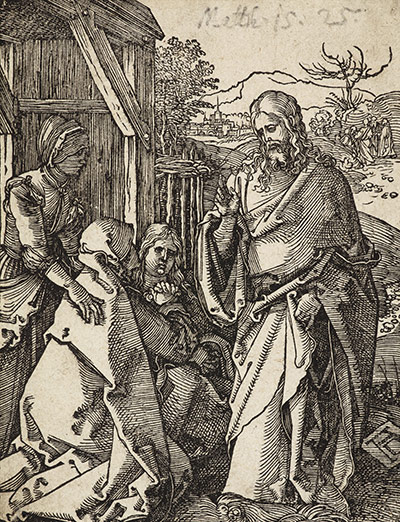
The gnarled lines and inky curls of this drawing are ripely Germanic but look at the way the people are posed, like beautiful sculptures, or actors posing for a tableau: this mastery of classical composition rivals his contemporary Raphael and is one of the reasons Dürer is such a great artist of the Renaissance, the movement of classical rebirth in 15th- and 16th-century Europe Photograph: National Gallery of Scotland

In this miraculous printed image, Dürer achieves with finely etched lines what Renaissance painters such as Antonello da Messina and Giovanni Bellini create with colours; a subtle, tangible atmosphere that hovers over the exquisitely detailed room in its precise perspective. This is one of his most ambitious prints, a tour de force demonstration of a new technology Photograph: National Gallery of Scotland
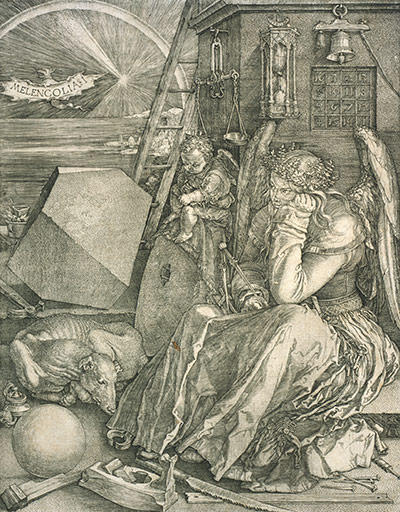
The most famous and enduring of all Dürer's works is a meditation on creativity, the darkness of imagination and the agony of ambition. In this print he fuses medical and philosophical ideas to create an image of artistic genius as innately brooding, solitary and saturnine that has endured, via Romanticism, right down to our own day Photograph: National Gallery of Scotland
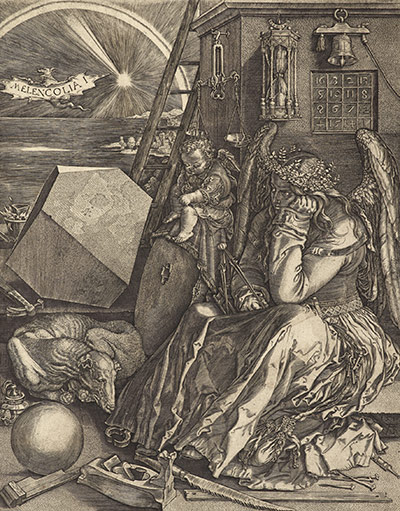
Copies, imitations and outright plagiarism helped to make Dürer's printed images influential and famous. This late 16th-century Flemish artist became renowned for his high-quality Dürer copies, which he signed so as not to be accused of forgery Photograph: National Gallery of Scotland
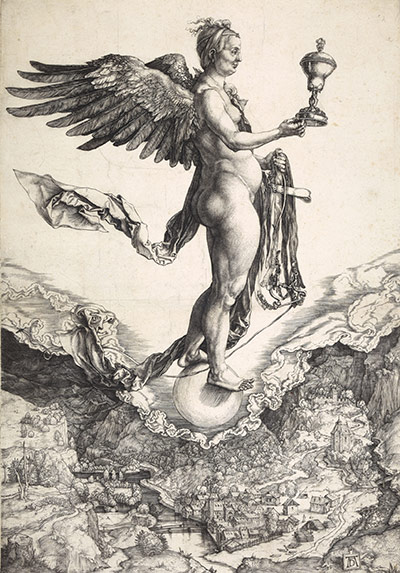
There is a genuine sense of nightmare in this vision of a god of destruction riding inexplicably through the heavens above a world seen from on high in uncanny detail: it is Dürer's bird's-eye view of the doomed Earth, imagined at a time long before flight or satellites, that gives formidable reality to this invocation of classical myth
Photograph: Antonia Reeve/National Gallery of Scotland
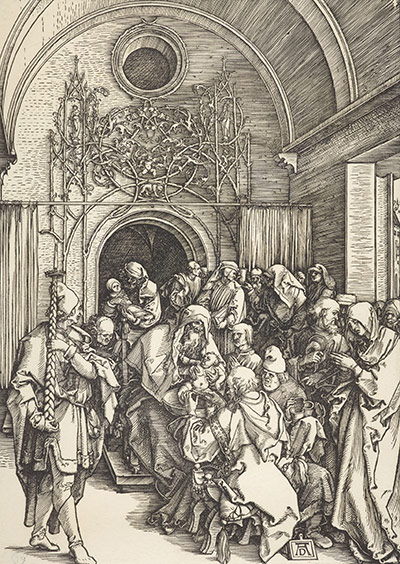
Here Dürer's craftsmanship and Gothic love of florid decoration almost overwhelm the story, as the religious scene is enfolded in fantastical draperies and richly carved architectural elaboration, with the added distraction of a candle holder shaped like Rapunzel's hair Photograph: National Gallery of Scotland
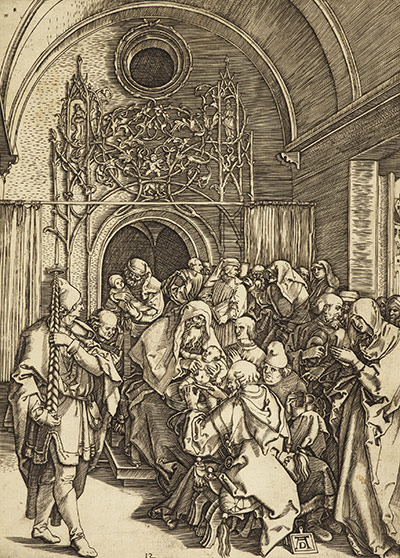
Raimondi was famous for engraving the works of Raphael, and was imprisoned for publishing a series of pornographic pictures called I Modi (The Positions). Here he learns from the master Photograph: National Gallery of Scotland
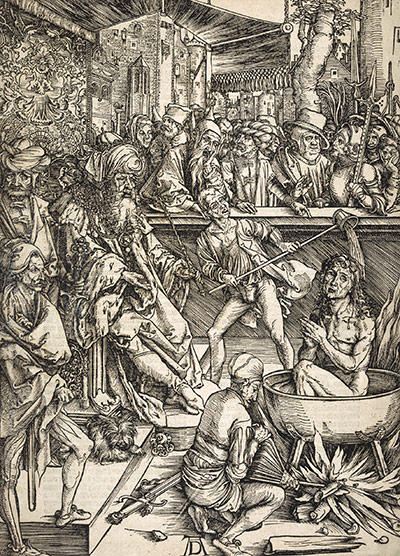
Dürer lived in a world of extreme, stark, black-and-white contrasts, far more raw than the subdued civic lives of modern European societies. When looking at a violent image like this we should see it not as pure fantasy but – in the witnesses' faces and the horrid flames – a realistic record of his age when public execution and torture were facts of life Photograph: National Gallery of Scotland
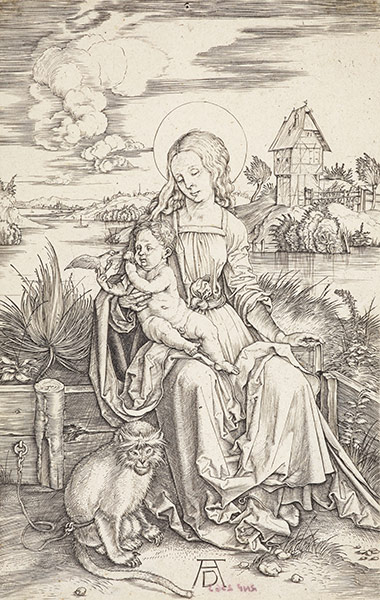
Albrecht Dürer was one of the first artists to depict nature with a scientific eye, and his inclusion of a beautifully lifelike monkey in this print illustrates why he had such a deep influence on the development of natural observation in European art in the centuries that saw the birth of modern science Photograph: National Gallery of Scotland
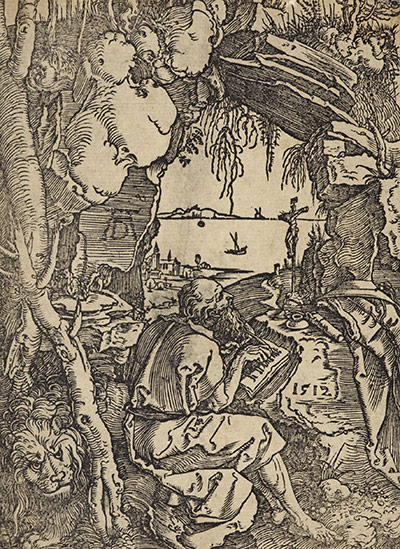
The rough edges and raw drama of this woodcut remind us that Dürer made art not just for princes and patricians but for a popular public, for whom the tangled rocky setting of this religious vision might have conjured up folk tales and myths of wild men in the woods Photograph: National Gallery of Scotland
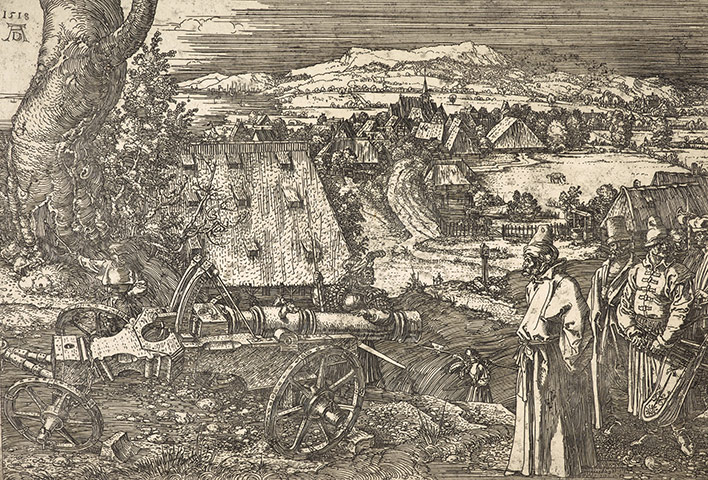
Cannon entered history when France invaded Italy in 1494, the first time mobile artillery proved decisive in a war. In this disturbing print Dürer makes one of the new devilish weapons the star, personifying a technology that changed the world as decisively as the printing press that so liberated his art Photograph: National Gallery of Scotland
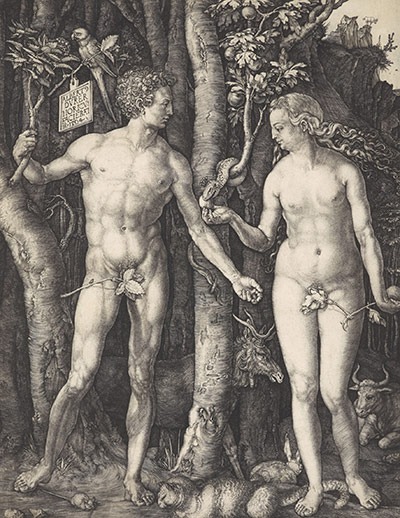
In his famous depiction of Adam and Eve in Paradise, Dürer fuses Christan and classical, pagan art. He gives Adam and Eve the bodies of ancient Greek statues, gracefully proportioned to show their original virtue, but unlike any true ancient Greek artist his vision is pervaded by a sense of sin Photograph: National Gallery of Scotland
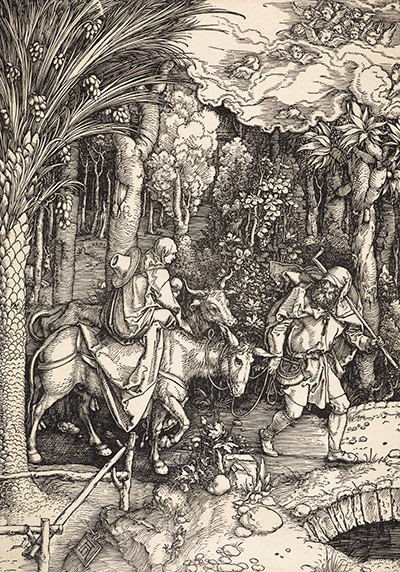
Dürer was raised in the craft traditions of medieval Germany in his native Nuremberg. When he travelled to Italy and discovered Renaissance classicism he did not reject German techniques but, as shown here, delights in the popular art of woodcut, relishing the Gothic richness of masses of ink stamped on to paper from an incised wooden block, to create an art at once beautiful and grotesque Photograph: National Gallery of Scotland
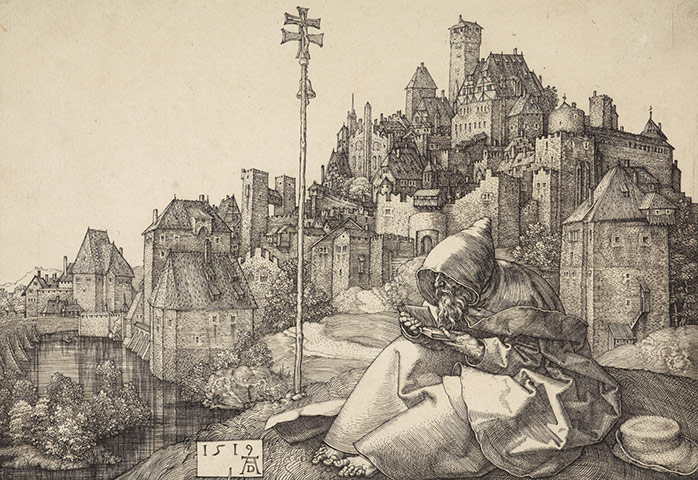
The town that rises on a hill beyond the hermit saint is one of the dreamy, walled, silent, castle-defended German cities that weave in and out of Dürer's landscapes like images of the ideal medieval community, or more darkly, fragile, frightened social enclaves huddled against their nightmares Photograph: National Gallery of Scotland







